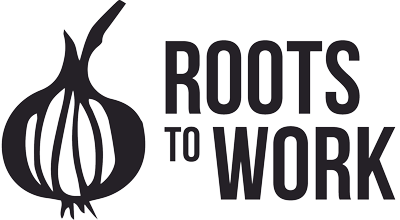
Sustain has participated in The RACE Report since its launch in 2022 – about one fifth of our alliance members also take part, mainly those focusing on environmental issues. This helps us all to have transparency and accountability for our actions to improve racial diversity in staff teams both at Sustain and across the environmental sector, plus actions to make the workplace more welcoming, rewarding and inclusive for people from diverse ethnic and cultural backgrounds.
In this blog, we reflect on this new analysis of for the environment sector, our collective progress, and what still needs to be done. For transparency, we also share Sustain’s own data (see more in our RACE Report transparency card). Next edition due in April 2025.
Commenting on this year's The RACE Report findings, Roshni Shah, Diversity Outreach Coordinator for Sustain, said:
“It is great to see more charities participating however signing up to The RACE Report is just the first step. Now organisations need to interrogate the lack of diversity in their workforce and what they need to do to attract, retain and advance Black people and people of colour (BPOC) talent. We can see that charities have made significant progress on statements and policies but now we need more tangible actions like mentoring and pay equity transparency and action. We need solidarity and more cross-sector collaboration to learn from each other and build a movement to prioritise and fund this work, to accelerate progress at the rate it needs.”
What is The RACE Report?
The RACE (Racial Action for the Climate Emergency) Report collects and analyses detailed data on ethnic representation across organisations working in climate, sustainability, and conservation in the UK. By providing transparent insights and actionable recommendations, the report aims to address the significant underrepresentation of Black people and people of colour in environmental and leadership roles, ultimately promoting greater equity and inclusivity in the sector.
What does this latest report tell us?
Note: The RACE Report published in 2025 is based on 2024 data.
Record participation: 161 environmental charity organisations representing over 28,600 employees submitted data for this latest report, more than doubling last year's participation and tripling that of the initial report in 2022. Sustain participated, with a staff team of 30 people.
Persistent diversity gap: Despite increased participation, racial diversity in the environmental charity sector remains significantly below the UK workforce average. Only 4.5% of staff in the sector identify as BPOC, compared to 16% in the national workforce. This is a worrying disparity that deserves priority attention. Data for Sustain’s team show 16% (5 people) identifying as BPOC, including 1 person in the senior management team. Data for Sustain’s governing body (Council of Trustees) shows 37% (7 people) identifying as BPOC.
Size-related diversity disparity: Smaller organisations (10-49 employees) show higher diversity with 14.1% of staff identifying as BPOC, while larger organisations (500-1,000 employees) have only 1.8% representation.
Our observation is that it is positive that more charities are participating in the report, hopefully signalling a commitment to race equity. However, the numbers show that significant progress still needs to be made, particularly across larger organisations, who have arguably more resources, opportunities and responsibility to drive change.
Also, it is worth noting that many environmental organisations have offices based in cities, where the population is typically much more ethnically diverse than the national average. Arguably, the sector could be using more ambitious metrics to drive change. Read our 2024 blog on targets and benchmarks.
Commenting following the launch of this year's RACE Report, Kath Dalmeny, Chief Executive of Sustain, said:
“Across the world, and in the UK, Black people and people of colour (the global majority) are often experiencing the immediate and accelerating impacts of climate change, loss of nature and the injustice of unequal access to wealth, land, and healthy food and environments. Conversely, people from diverse ethnic and cultural backgrounds have a wealth of experience, values, knowledge and connections that can contribute to the solutions. So why is diversity not better reflected in staff teams in the environmental sector? And why are diverse perspectives and lived experience not better reflected in the solutions we champion? There is no room for complacency or ‘business as usual’. We must take conscious steps to be allies and to change this for good.”
Sustain’s progress in 2024
Both as an employer, and as a collaborative convenor of projects and advocacy work, Sustain is committed to moving beyond tokenistic measures, towards embedding policies, practices and culture for meaningful change in our organisation and beyond. As an alliance, we feel we have an enhanced responsibility to ‘get our own house in order’ as well as to support others, and to take an allyship or leadership role - where appropriate - through our anti-racism work.
From 2023 onwards, we have invested in a Diversity Outreach staff role, to develop new outward-facing work and relationships to help play our part in wider system change. During 2024, this work included:
-
Establishing a Food & Racial Justice Working Group in collaboration with the Eating Better Alliance.
-
Creating and recruiting participants for a movement-building programme to support alliance organisations to become more inclusive and anti-racist, offering a 6-month programme of one-to-one support, peer learning sessions and training.
-
Development of a paid internship / work placement programme to support people from underrepresented backgrounds, hosting one student placement in 2024, and planning towards offering one or more six-month paid internships in 2025.  
-
Running or contributing to workshops and training, e.g. on lived experience, solidarity and social change; careers in sustainable food; and dignity and respect in the workplace.
-
Further development of our Roots to Work jobs portal. Including launch of our Careers in Sustainable Food and Farming resource, as well as new pages for advice, courses, signposting, careers profile blogs from people from diverse ethnic and cultural backgrounds, and encouraging employers to consider adopting pro-diversity recruitment policies and practices.
Internally, in terms of ‘getting our own house in order’, Sustain has been building on initial steps taken in previous years. In 2024, we made specific changes at Sustain in line with RACE Report guidance and recommendations, including:
-
Creating guidance and training for all job interview panellists about inclusive and anti-racist practice.
-
Undertaking a staff survey, incorporating The RACE Report perceptions questions for colleagues of colour and collated this data anonymously as baseline. We have committed to do this each year to help with transparency and accountability for the organisation.
-
Creating guidance on Trustee role-shares, and introduced per diem payments. Role-shares are offered for younger people from diverse backgrounds to gain experience in charity leadership.
-
Integrating diversity, equity, inclusion and anti-racism into our new Dignity & Respect Code of Conduct for all colleagues. This helps embed respectful, welcoming and inclusive practices as part of our organisational culture and expectations of behaviour.
Where we need to improve
We acknowledge that we are on a journey, and where progress has been made, we have of course faced challenges and there are many areas in which we must still improve on at an organisational and systemic level. Some priorities in Sustain’s action plan for this year include:
-
More reflection on how we can 'turn up the dial' and drive system change. For example, we do a lot of work on food poverty, food justice, healthy and sustainable diets, access to land, and climate change. What more can we do to understand and pursue these with a diversity, equity, inclusion and racial justice lens? We will also collaborate with others to run a Food & Racial Justice Summit, in June 2025 - inviting participation from organisations across the sector and funders.
-
More entry-level and career development opportunities for people with diverse personal characteristics, including ethnic and racial diversity. This will include, for example, running a paid internship programme; developing our Roots to Work jobs platform; and creating training and resources for recruiters on inclusive hiring practices.
-
Development of deeper relationships with sector organisations through the Food and Racial Justice Working Group, for mutual learning, and offering peer support, training and opportunities to share good practice and develop insights and joint initiatives.
-
Development of information and communications around food and colonialism, by ourselves and others.
-
Helping our sector secure funding and other resources to address race equity in the sector. Such work must be prioritised and funded adequately to drive progress.
Internally, we have a detailed action plan, which sets objectives and deliverables across a wide range of work. Within this, we will do more work on, for example:
-
Skills, training, space for reflection and progression opportunities for colleagues of colour, as part of our overhaul of skills and development for the Sustain team and for younger people in role-shares on our Council of Trustees, both to embed DEI and anti-racism, and to contribute towards personal career development plans.
-
More work on embedding anti-racism into organisational culture and belonging for colleagues of colour.
-
Consistent implementation of our new guidance on offering payments to contributors with lived experience, and other ways to overcome barriers to participation.
-
Maintaining open listening channels for groups within Sustain (colleagues of colour; health group; LGBTQIA+ group) to share and act on ideas, concerns and solutions.
-
Embedding DEI and racial justice throughout Sustain’s new five-year strategy (in development during 2025), including what role our alliance can play in diversity outreach and system change.
We have tried to be as transparent as possible about our progress and where we need to improve. However, we are very much on a journey and therefore, welcome any feedback, critique, or insights on your own work in the area. Get in touch with Sustain's Diversity Outreach Coordinator Roshni Shah to share.



